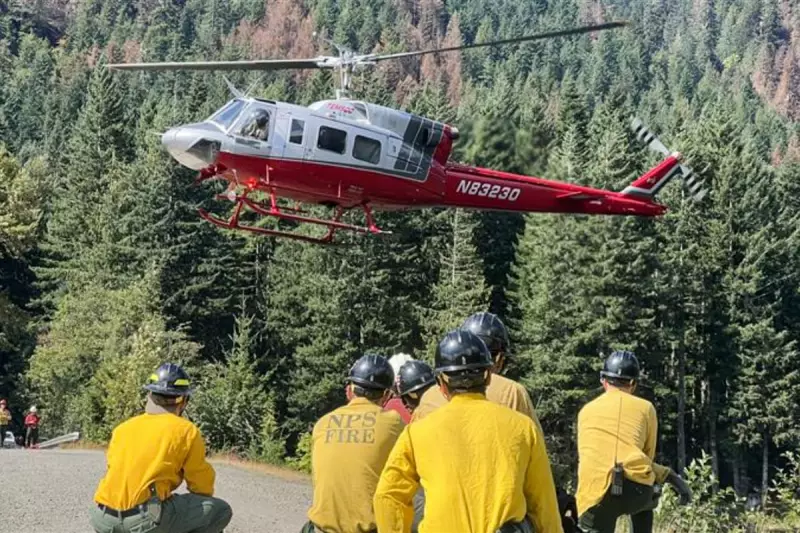
A serious incident at the Oregon state line has sparked outrage and raised critical questions about emergency coordination protocols. US Border Patrol agents stationed near the California-Oregon border allegedly prevented Oregon Department of Forestry (ODF) firefighters from crossing into a remote area to combat a rapidly spreading wildfire.
The confrontation, which occurred in the rugged terrain of the Siskiyou Mountains, highlights a dangerous clash between federal border security mandates and state emergency response efforts during a worsening fire season.
A Barrier to Emergency Response
According to official reports, the ODF crew was en route to tackle the Grizzly Creek fire when their access was blocked. The agents, operating under US Customs and Border Protection (CBP), reportedly stated the firefighters lacked the necessary federal authorisation to proceed through the remote checkpoint, despite the clear and present danger of the expanding blaze.
This obstruction forced the fire crew to undertake a significant detour, losing precious hours in their race to contain the flames. The delay potentially allowed the fire to grow, threatening more acreage in the densely forested region.
Official Reactions and Mounting Tensions
An ODF official confirmed the alarming encounter, stating the delay was both "frustrating and concerning" for crews dedicated to protecting life, property, and natural resources. The incident has prompted immediate and high-level discussions between state and federal authorities.
In response, a CBP spokesperson acknowledged the event and emphasised that their agents are trained to "balance their border security mission with facilitating legitimate trade and travel." They confirmed that internal reviews are underway to examine the procedures that led to this critical delay in emergency services.
The Broader Implications for Disaster Management
This event casts a stark light on the complex interplay between different levels of government during crises. Experts are now questioning whether existing inter-agency agreements are sufficient to prevent such dangerous standoffs in the future, especially in remote border regions where federal and state jurisdictions overlap.
As wildfire seasons grow longer and more intense due to climate change, the need for seamless cooperation between all emergency services has never been more urgent. This incident in Oregon serves as a potent warning that bureaucratic barriers can have real-world, potentially devastating consequences.





